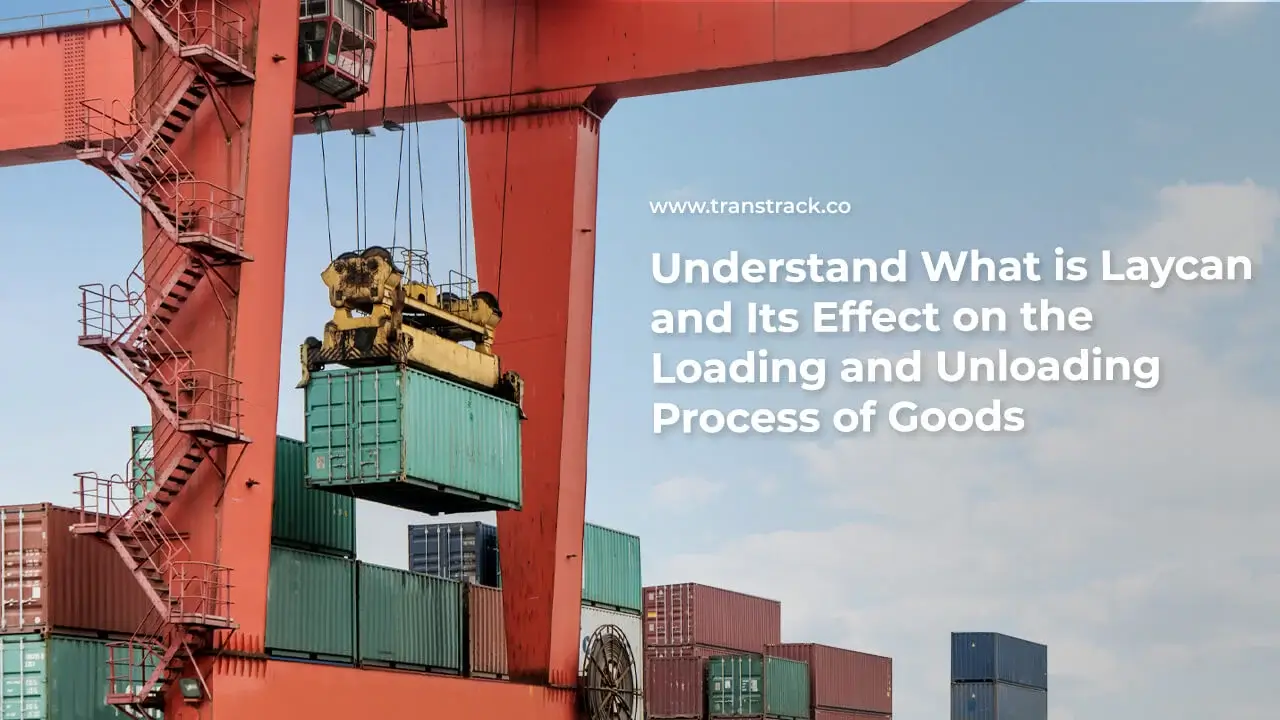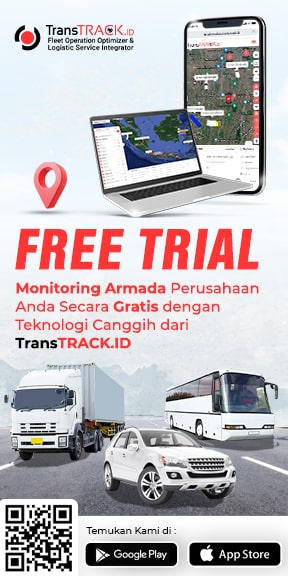Understand What is Laycan and Its Effect on the Loading and Unloading Process of Goods

As a business player in the logistics and freight forwarding industry, you may already be familiar with the term Laycan. However, for some people, this concept may still be unfamiliar and confusing.
Laycan is an important term related to the loading and unloading agreement between the ship/port owner and the logistics party or the owner of the goods. Laycan indicates the approximate time span in which a vessel is expected to arrive at the unloading port on a predetermined date.
A proper understanding of Laycan is vital. If there is a delay or acceleration of ship arrival from the agreed timeframe, it will have an impact on loading and unloading activities and the level of logistics efficiency. In addition, inaccurate Laycan determination also has the potential to trigger penalties for ship owners or charterers.
Through this article, TransTRACK will explain the complete Laycan-related information that has been summarized from various sources. So, let’s listen!
Definition of Laycan
Laycan stands for Laytime and Cancelling Date, which is a predetermined time span for the arrival and departure of ships at the port. This time span includes the period during which the vessel can arrive at the port and start the loading and unloading process.
In the context of the process of loading and unloading goods, Laycan has a crucial role. This set timeframe forms the basis for planning and executing logistics activities. Laycan helps ensure the availability of necessary resources, such as loading and unloading facilities, heavy equipment, and labor, so that the process can run smoothly and efficiently.
Laycan’s Role in the Loading and Unloading Process
The loading and unloading process is a critical stage in the supply chain that involves the transfer of goods from ships to ports or vice versa. In this context, the concept of laycan plays an important role in determining and managing the crucial time span for ship arrival and departure. These are some of the roles of laycan in the loading and unloading process:
Ship Arrival Timer
Laycan first serves as a timer for the arrival of ships at the port. Within a pre-set time range, the ship is expected to arrive and start the loading and unloading process. Determining this arrival time is crucial to ensure effective coordination between relevant parties, such as ship agents, port operators, and stevedoring service providers.
Proper Logistics Planning
Laycan provides the basis for effective logistics planning. By knowing the time span available, companies can plan loading and unloading activities carefully. This includes scheduling resources such as heavy equipment, labor, and storage facilities. That way, the loading and unloading process can be carried out without a hitch and in accordance with the predetermined time.
Prevention of Delays in the Process
One of the next main roles of laycan is to prevent delays in the loading and unloading process. By setting clear timeframes, companies can anticipate and overcome obstacles that may arise. This includes adjusting to unexpected weather conditions or changes in port capacity.
Ship Queue Management
In a busy port, vessel queue management is an important aspect. Laycan allows companies to better organize and manage ship queues. By determining the appropriate arrival time, the company can reduce vessel queues and keep the loading and unloading flow efficient.
Factors Affecting Laycan
Now, let’s discuss some of the factors that can affect laycan in the loading and unloading process. Here is the description:
Weather and Natural Conditions
Weather factors and natural conditions are one of the main factors affecting Laycan. Bad weather such as storms or large waves can hinder the arrival of ships or even jeopardize the loading and unloading process. Related parties need to pay attention to weather forecasts to anticipate potential delays or cancellations.
Port Facility Conditions
The availability and condition of port facilities also play a key role in determining Laycan. If loading and unloading facilities are inadequate or suffer damage, companies may need to adjust vessel arrival schedules. Regular maintenance and upgrading of port infrastructure is critical in overcoming this obstacle.
Port Busyness
Busy ports tend to have more limited timescales for vessel arrivals. This busyness can be caused by a high volume of goods, a large number of vessels, or slow administrative processes. Careful planning and good coordination are required to avoid delays due to port congestion.
Licensing and Documentation Requirements
The permitting and documentation process can be a serious obstacle in determining Laycan. Delays in obtaining permits or completing documents can force schedule changes and negatively impact operational efficiency. Good coordination with authorities and careful planning can overcome these issues.
In the dynamic world of logistics, an in-depth understanding of Laycan and its effect on the loading and unloading process of goods is essential. By having well-defined laytimes, companies can improve their operational efficiency and avoid unwanted delays.
To deal with challenges related to Laytime and Cancelling Date, companies can utilize TransTRACK’s latest technology and system, the Truck Appointment System (TAS). The application of Truck Appointment System technology has a significant impact in optimizing Laycan-related challenges in the loading and unloading process.
TAS enables companies to perform precise scheduling of truck arrival times, minimize waiting time, and improve the efficiency of using loading and unloading facilities. With the integration of TAS in the logistics system, companies can manage truck queues more effectively, provide greater visibility into the supply chain, and identify potential bottlenecks.
Performance monitoring and data analysis through TAS provide valuable insights, allowing companies to make better and proactive decisions in the face of changing conditions, such as changes in weather or port dynamics. Thus, TAS not only improves schedule accuracy according to Laycan but also provides a holistic solution to optimize logistics processes and improve overall operational performance. So, for those of you who are interested in the benefits of the Truck Appointment System, contact TransTRACK right now!
Topic





